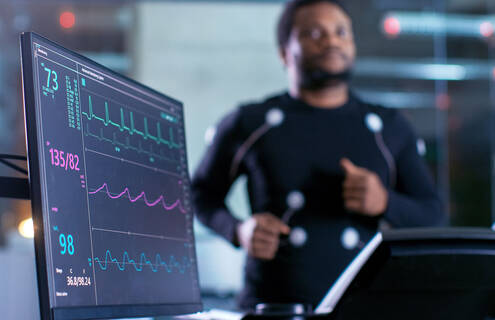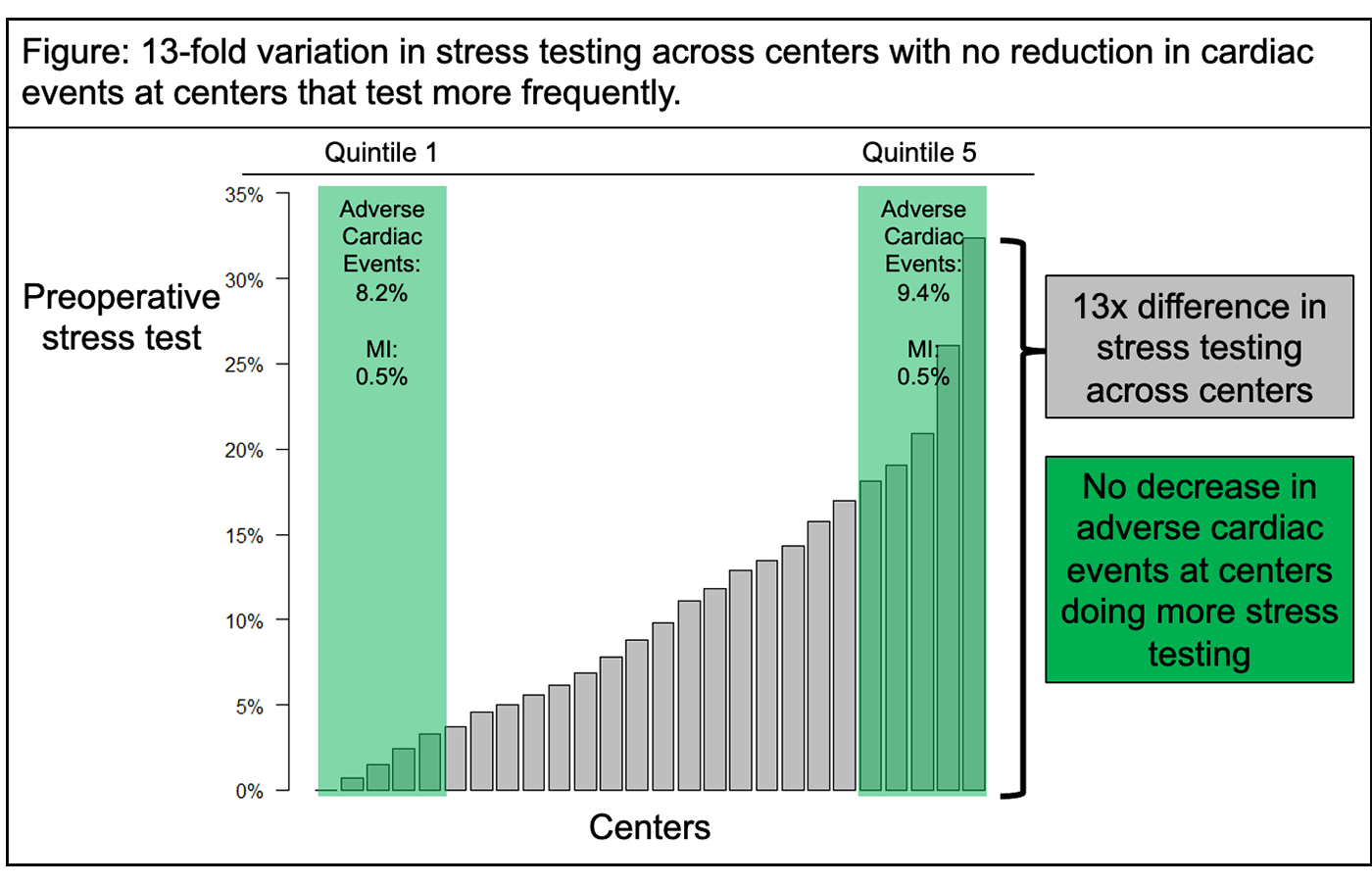
If you've had surgery, chances are you've had a stress test. Often, a stress test consists of walking on a treadmill or riding a stationary bike for about 10 minutes. During this time, your doctor monitors your heart's electrical activity, blood pressure, heart rate and breathing. And historically, stress tests have been used to help predict your risk for having a heart attack during surgery.
Recently, using nationwide vascular registries and data, multiple Dartmouth Hitchcock Medical Center (DHMC) studies show that doctors may need to change who they order stress tests for before surgery. Jesse A. Columbo, MD, a vascular surgeon at DHMC shares, "Our research shows that stress tests are likely being overused across North America, which can lead to unnecessary delays in care and added health care expense."

The research
Dr. Columbo along with Dr. David Stone from the Section of Vascular Surgery at DHMC, partner to lead multiple studies that track the use of stress tests ordered and performed before surgery. These studies seek to better understand the role stress testing plays in keeping patients well and predicting how someone will fare during and after surgery.
- One study revealed:
- There are large variations in the use of stress testing across 300 medical centers in North America.
- Stress tests were ordered regardless of a patient's perceived cardiovascular risk.
- That heavy use of stress testing was not linked to better health outcomes following surgery.
- Another study found:
- Increased stress testing was not associated with a reduction in events like heart attack during surgery.
To help reduce the cost of care and improve a patient's medical experience, Columbo shares, "Additional research is needed. It remains uncertain whether more frequent stress testing truly results in how well someone tolerates surgery and how well they do after they receive that care."
Columbo reports that the Heart and Vascular Center doctors at DHMC are dedicated to focusing on a person's individual needs and fostering state-of-the-art academic medical science and research for our patients and their families. Columbo shares, "Undergoing surgery can be overwhelming for people. We want to know for certain that the preoperative tests we're ordering are predictive and supportive of the people who are trusting us with their care."
Find details about Dartmouth Health's resources for heart and vascular patients here.